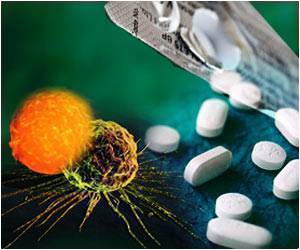A Scottish woman has given birth to a baby by using a section of ovarian tissue that was frozen and preserved.

‘Cancer patient gives birth to a healthy baby boy after her reproductive (ovarian) tissue was frozen and preserved, before it endured damage from side- effects of chemotherapy & radiation.’





The patient explained ,”When I had the initial procedure to remove my ovarian tissue, it was very new and experimental. There was no guarantee that it would work and while I kept the possibility in the back of my mind, my husband and I never pinned our hopes on it being successful. It was hard to imagine how well it could work, given that my tissue had been stored for such a long time and I had already had one round of chemotherapy before it was removed.” She added “We never thought it would be possible and we are just astonished and overjoyed.”This medical triumph has now given hope to thousands of young people who undergo gruelling bouts of cancer treatment each year. The University of Edinburgh, which has led the research, announced the procedure is now open to all NHS patients. By removing healthy tissue from the organs before treatment, patients are given a chance of becoming parents in the future.
Prof Richard Anderson, Elsie Inglis chair of clinical reproductive science, MRC Centre for Reproductive Health at the University of Edinburgh, said the treatment has given hope to girls and young women undergoing treatment that may render them infertile.
Rob Thomson, of the Scottish National Blood Transfusion Service (SNBTS), which collaborated on the scheme said, “We are pleased to hear this wonderful news and are proud to have been part of this scientific breakthrough, a first in the UK.”
The research has been predominantly focused on girls but the team has now developed a system which allows them to offer the service to boys too. Scientists are freezing tissue from the reproductive organs of boys and girls as young as one, which can then be re-implanted once they reach adulthood. The pioneering new service for pre-pubescent boys has been launched by Edinburgh University, in the hope that the tissue could be re-implanted when they reach adulthood. Restoring fertility in men is more difficult than in women as the testicular tissue of pre-pubescent boys is not yet able to produce sperm. Adult sperm cells can be frozen, but young boys currently have no way of preserving their fertility as their cells are too immature. One of the first patients is a five-year-old boy, who is currently receiving high dose chemotherapy and radiotherapy in Edinburgh after being diagnosed with a brain tumor. The tissue will be stored for up to 55 years.
Advertisement
The university worked in collaboration with the Scottish National Blood Transfusion Service on the research, which was funded by the European Union, the Medical Research Council, the Wellcome Trust and the charity Children with Cancer.
Advertisement
Source-Medindia















